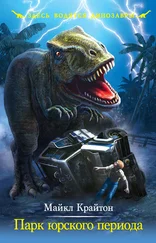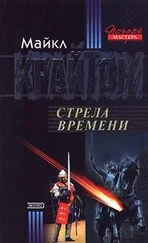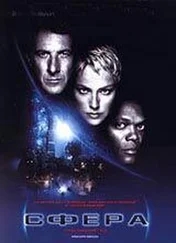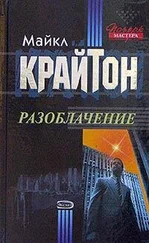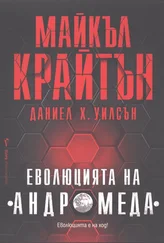Майкл Крайтон - The Andromeda Evolution
Здесь есть возможность читать онлайн «Майкл Крайтон - The Andromeda Evolution» — ознакомительный отрывок электронной книги совершенно бесплатно, а после прочтения отрывка купить полную версию. В некоторых случаях можно слушать аудио, скачать через торрент в формате fb2 и присутствует краткое содержание. Год выпуска: 2019, Издательство: HarperCollins, Жанр: Фантастика и фэнтези, Триллер, thriller_medical, на английском языке. Описание произведения, (предисловие) а так же отзывы посетителей доступны на портале библиотеки ЛибКат.
- Название:The Andromeda Evolution
- Автор:
- Издательство:HarperCollins
- Жанр:
- Год:2019
- ISBN:нет данных
- Рейтинг книги:3 / 5. Голосов: 1
-
Избранное:Добавить в избранное
- Отзывы:
-
Ваша оценка:
The Andromeda Evolution: краткое содержание, описание и аннотация
Предлагаем к чтению аннотацию, описание, краткое содержание или предисловие (зависит от того, что написал сам автор книги «The Andromeda Evolution»). Если вы не нашли необходимую информацию о книге — напишите в комментариях, мы постараемся отыскать её.
“The Andromeda Strain,” as millions of fans know, described the panicked efforts to stop the spread of an alien microparticle that first turned human blood to sawdust and then dissolved plastics. (Spoiler alert: Humanity survived.) For half a century, a mutated strain has floated harmlessly in Earth’s atmosphere while a special team of watchers maintained Project Eternal Vigilance.
When “The Andromeda Evolution” opens, a drone spots a metallic-looking shape growing up out of the Amazon jungle, “the whole of it gleaming like a beetle’s waxy shell in the rising midday sun.” Situated along the equator, this giant structure is located far from any development, deep in an area inhabited only by tribes who have never made contact with modern civilization. Mass spectrometry data taken by military satellites indicates that the quickly swelling mutation is “an almost exact match to the Andromeda strain.”
(HarperCollins)
A scientist announces, “There is an alien intelligence behind this,” which I have often thought when I clean out the refrigerator. “We are facing an unknown enemy who is staging an attack over the gulf of a hundred-thousand years and across our solar system and likely the cosmos. This is war.” The ability to fathom this threat is not as crucial as the ability to deliver such lines with a straight face.
Wilson suggests that a nuclear strike is problematic because the anomaly is on foreign soil, though such diplomatic awkwardness probably wouldn’t matter if we’re all dead. But the bigger problem is that the anomaly feeds off energy, which a nuclear explosion would provide in abundance. Given that predicament, humanity has just one hope to avoid what the military calls “the ‘gray goo’ scenario” that would kill everyone on Earth: Project Wildfire.
The elite Wildfire crew will trudge into the jungle and try to keep the planet from being infected. In accordance with the requirements of the inevitable movie version, the Wildfire team consists of a small group of contentious scientists who are dangerously ill-equipped to trudge into the jungle. Their leader is an interesting character: a woman who rose from the slums of Mumbai to become a world-renowned expert in nanotechnology. But alas, the rest of her crew are drawn from a fetid petri dish of stereotypes: a handsome white man with a tragic connection to the first Andromeda crisis; an Asian woman with a “keen intellect and piercing black eyes” who should not be trusted; and an older black man who offers our hero sage counsel before, sadly, perishing. Naturally, there’s also a villain with special needs motivated by deep-seated rage at her crippled body.
Predictable as this group is, their adventure is at least as exciting as Crichton’s original story — and considerably more active. The jungle provides an ominous setting for some spooky scenes. And the episodes set in outer space are particularly thrilling. (Rereading “The Andromeda Strain” last week, I realized that I had forgotten how cramped the story is.)
But “The Andromeda Evolution” genuflects appropriately to the 1969 novel that instantly infected pop culture. With little genetic decay, Wilson replicates Crichton’s tone and tics, particularly his wide-stance mansplaining. Each chapter begins with a quotation by Crichton selected, apparently, for its L. Ron Hubbard-like profundity, e.g. “There is a category of event that, once it occurs, cannot be satisfactorily resolved.” And the pages — sanitized of wit — are larded with lots of Crichtonian technical explanations, weapons porn, top-secret documents and so many acronyms that I began to worry Wilson had accidentally left the caps lock on.
As you might expect from a guy with a PhD in robotics, Wilson throws in lots of cool gizmos, too. A slavish flock of miniature drones plays a crucial role in the plot, and a massive technological breakthrough eventually takes center stage. But at other times, Wilson plays too fast and loose with the biological laws of his own pathologic crisis. For instance, as the science team prepares to move deep into the infected jungle, their leader says, “Tuck your pants into your boots and wear gloves” — the same precautions I would take to build a snowman.
But who cares? These various lapses may be irritating, but ultimately they don’t derail what is a fairly ingenious adventure. As the story swings from military jargon to corny implausibility, the fate of the Earth hangs from a thread of rapidly mutating cells. Finally, our hero says the words we never tire of hearing: “Technically, it’s doable. It’s insane. But it’s doable.” That portentous claim launches one last spectacular scene that would make Crichton proud.


